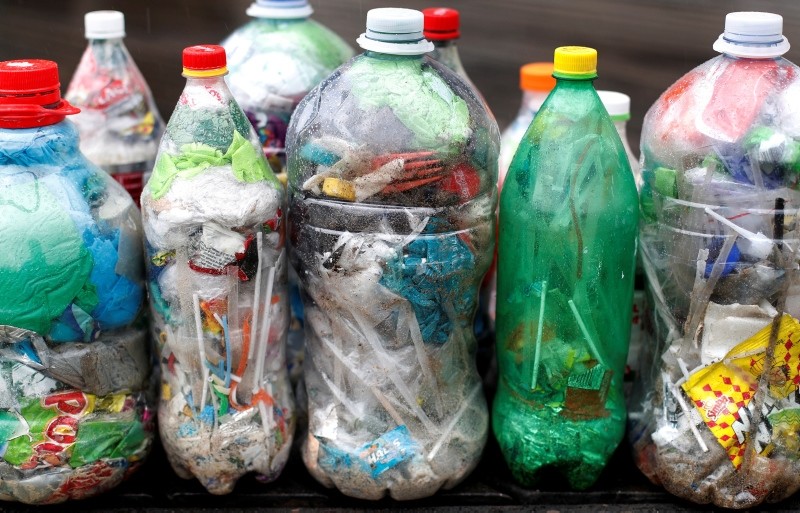
Scientists in Austria say they've detected tiny bits of plastic in people's stool for the first time, but experts caution the study is too small and premature to draw any credible conclusion.
Presenting their findings at a congress in Vienna on Tuesday, researchers from the Medical University of Vienna and the Environment Agency Austria said their pilot study detected so-called microplastics in all samples taken from eight volunteers in Europe, Russia and Japan.
Microplastics — defined as pieces smaller than 5 millimeters — have previously been found in water, animals and food, but so far studies haven't proved they pose a risk to human health.
Still, there is growing public concern about their apparent ubiquitous presence in the environment, and the head of Germany's Green party said the Austrian study was "a further alarm signal."
Robert Habeck told the Funke media group that microplastics should be banned from cosmetic products and the use of plastic packaging should be greatly reduced.
However, experts say it's not surprising that microplastics would be found in human samples too, and said the Austrian study raises many questions.
"It's small scale and not at all representative," said Martin Wagner, a biologist at the Norwegian University of Science and Technology. He noted that the study wasn't reviewed by independent scientists and the authors haven't provided details about the measures taken to prevent samples from becoming contaminated.
"In the worst case, all the plastic they found is from the lab," Wagner told The Associated Press.
Even if microplastics are found in stool, this doesn't mean they have entered the human body, he said. Unlike other substances we eat, microplastics are too large to be absorbed by cells in the gut and simply pass through.
His concerns were echoed by Mark Browne, an expert on microplastics at the University of New South Wales, Australia, who said the study lacked crucial details.
"Poor quality observations of contamination do not represent well the scientific method and therefore in my humble opinion do not help us understand impacts on humans or manage them," Browne told the AP by email.
The Austrian authors acknowledged that "further studies are necessary to assess the potential risk of microplastic for humans." They plan to submit a detailed study for independent review in the coming months.
"I'm not at all surprised, or particularly worried by these findings," commented Alistair Boxall, a professor in environmental science at the University of York in Britain.
"Microplastics have been found in tap water, bottled water, fish and mussel tissue, and even in beer," he added. "It is therefore inevitable that at least some of these things will get into our lungs and digestive system."
Much more research is needed, he said, before we can determine the origin of plastics found in the gut, and especially whether they are harmful.
For Stephanie Wright, a researcher at King's College London, the real question is whether plastics are accumulating in the human body.
"What is unknown is whether the concentration of plastic being ingested is higher than that coming out, due to particles crossing the gut wall," she said.
"There is no published evidence to indicate what the health effects might be."
Global plastic production has grown rapidly, and is currently more than 400 million tonnes per year.
It is estimated that two to five percent of plastics wind up in the ocean, where much of it breaks down into tiny particles.
